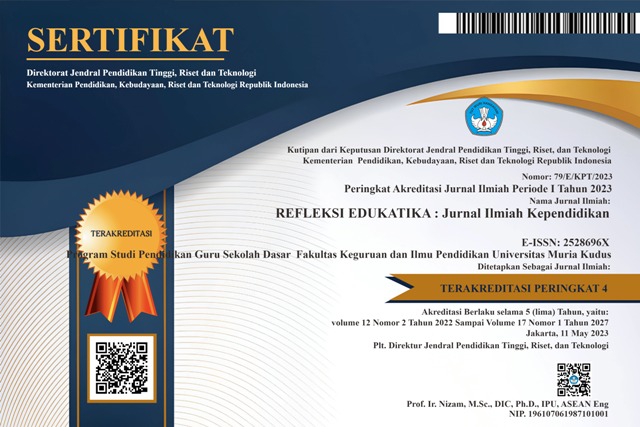IMPLEMENTATION OF THE POGIL MODEL ON BLENDED LEARNING TO IMPROVE METACOGNITIVE SKILLS DURING THE COVID-19 PANDEMIC
Sari
The purpose of this study is to improve students' metacognitive skills through the
application of the Process-Oriented Guided Inquiry Learning (POGIL) model in blended
learning in the COVID-19 pandemic era on molecular form materials.
The research method used is experimental quantitative. The research subjects were
students of class X IPA 1 SMAN 14 Surabaya. The research data refers to the
implementation of learning, observation of student activities, improvement of metacognitive skills and learning outcomes using One Group Pretest and Post-test Design as research designs. Data analysis used percentage, average, n-gain score, normality test, and paired sample t-test.
The results showed that (1) the implementation of learning was categorized as very good with the percentage of each phase of orientation, investigation, concept formation, application, and closure as 92.97%; 84.38%; 93.75%; 93.75%; and 92.71%, (2) students were actively involved in the learning process with a percentage of relevant activities of 93%, (3) students' metacognitive skills increased in three metacognitive dimensions in terms of the n-gain score of 0.74-0.77 in the very good category, and (4) There is a significant difference in the result of metacognitive skills between before and after being given a POGIL model based on blanded learning. The implementation of POGIL model on blended learning in this study as a whole can improve students' metacognitive skills in the era of the COVID-19 pandemic in molecular shape.
Kata Kunci
Teks Lengkap:
PDFDOI: https://doi.org/10.24176/re.v12i1.5773
Refbacks
- Saat ini tidak ada refbacks.
Visitors:





